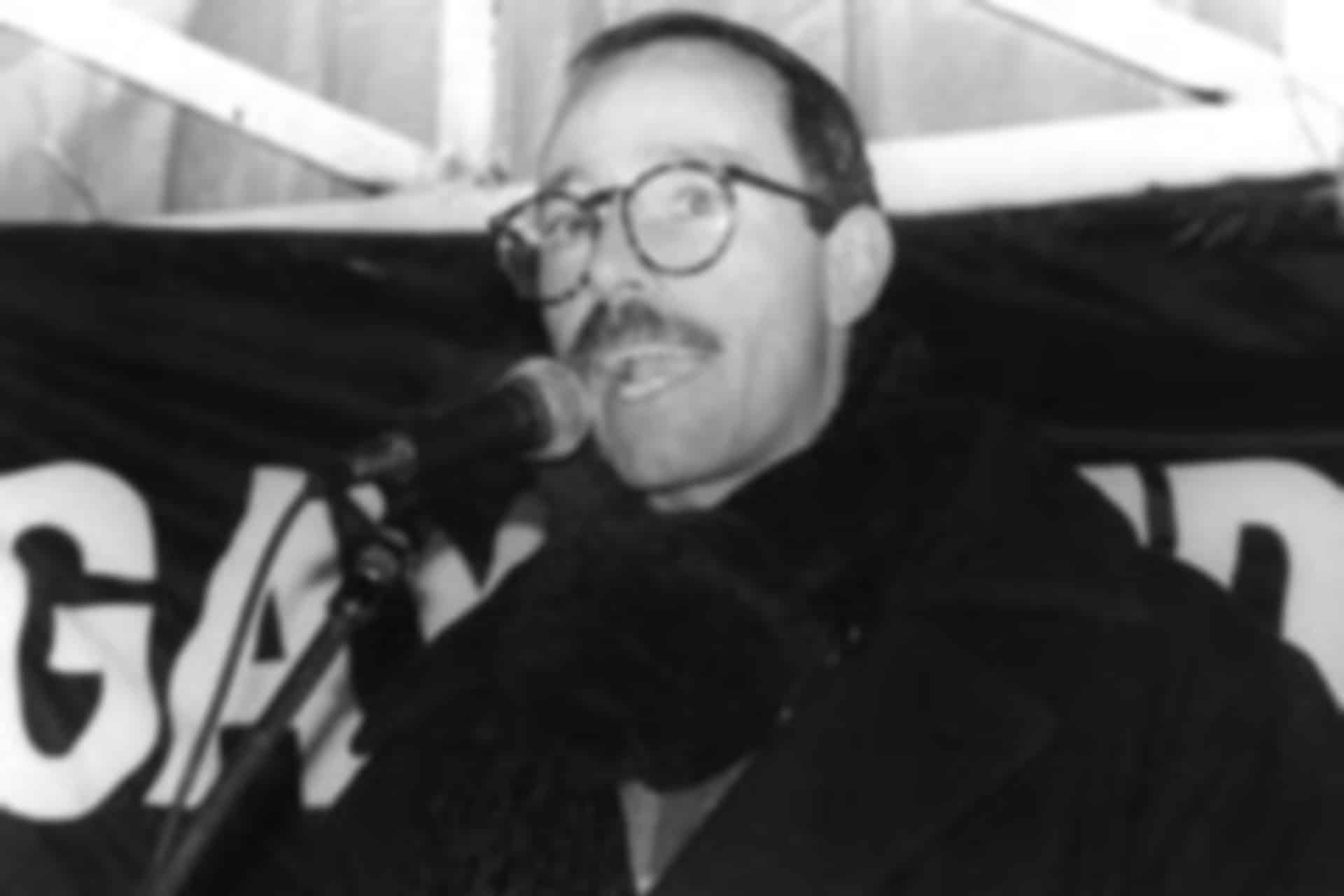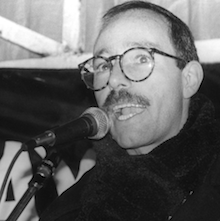
Vito Russo (1946-1990) was the founder and driving force behind a whole series of gay and lesbian organisations in the USA - and one of the key figures in the AIDS activist group ACT UP. A film documentary now pays tribute to the life of this charismatic man.
On that legendary night of 27 to 28 June 1969, 23-year-old film student Vito Russo was still standing on the sidelines. From a tree on the opposite side of the street, he anxiously observed the events in the New York gay bar "Stonewall". After a police raid, the guests had barricaded themselves in, triggering a riot. The resistance to police brutality gave birth to the "Gay Rights Movement", a movement that campaigned for gay rights and soon spread from the USA to Europe.
It was only a few months later - during another raid, a gay Latino man panicked and fell out of a window to his agonising death - that Russo freed himself from his powerlessness: together with many hundreds of others, he joined the protest march against police arbitrariness and hunts for homosexuals.
New forms of protest
Vito Russo's strong political awareness and sense of injustice, as well as his charisma, humour and presence as he campaigned for the rights of lesbians, gays and transsexuals, and later for people with HIV and AIDS, can now be seen in the documentary "Vito".
Director Jeffrey Schwarz brought numerous contemporary witnesses, friends and comrades-in-arms of Russo in front of the camera, including bestselling author Armistead Maupin ("Stories from San Francisco") and director Robert Epstein ("The Times of Harvey Milk"). Schwarz also found what he was looking for in archives and was able to assemble an extremely authentic and lively picture of this bustling man - with interviews from various phases of his work and photos of the activities of the organisations he co-founded.
One example is the Gay Activists Alliance (GAA), one of the first homosexual human rights groups in the USA. Under Russo's leadership, the group tried out new forms of protest such as street actions, occupations and vigils. Up to 700 people flocked to the regular meetings alone, says a GAA veteran. Which regional gay group would still get so many people on their feet today?
He believed in the power and strength of the community
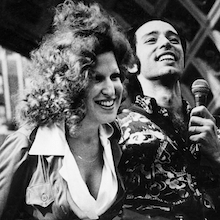
Russo, as becomes clear in the interviews with his friends, relatives and companions, but even more so in his own interview passages, could not and would not stand idly by and watch injustice. He believed in the power and strength of the community - and he knew how to achieve great public attention with little manpower but spectacular ideas.
In response to the negative and discriminatory portrayal of gays and lesbians in the media, Russo founded the Gay & Lesbian Alliance Against Defamation (GLAAD) together with two other comrades-in-arms in 1985. Their very first campaign against the sensationalist, panic-inducing and prejudiced AIDS coverage in the tabloid "New York Post" met with a nationwide response.
A great deal of information can be packed into 90 minutes of film. And yet Jeffrey Schwarz's documentary produced for the US cable channel seems far too short to do justice to everything Russo has achieved in his 44 years of life - from the first gay TV show on New York cable television to the founding of the radical AIDS action group ACT UP.
And then there is Russo's passion for cinema, which has driven him almost manically since childhood and made him the first gay film historian. His book "The Celluloid Closet" (German: "Schwule Traumfabrik"), in which he shows the history of homosexuality in film and its distorted representation, especially in Hollywood cinema, is still a standard work today.
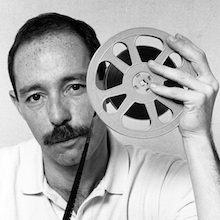
By the time this book was published in 1981, accompanied by great media interest, Russo had become a gay celebrity and an author known far beyond the scene. With ACT UP, he finally became a hero and "elder statesman" of the community: in 1984, his partner Jeffrey moved back to San Francisco and soon after fell ill with Aids. Russo followed him to care for him. He also worked at the city's AIDS foundation. The following year, he was diagnosed himself. The gay activist became an AIDS activist.
"If I go to the demos, you can do it all"
"He had a special gift for being angry and endearing at the same time," says writer Larry Kramer ("Fags", "The Normal Heart") about Russo, who was also one of the co-founders of ACT UP. Once again, Russo has become the charismatic and imaginative frontman of a movement that brings the masses onto the streets. "If I go to the demos, you all can," he urged ACT UP sympathisers, already severely weakened by illness.
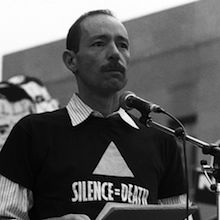
In terms of public relations, Russo was almost irreplaceable in these politically heated years of the fight for appropriate care for AIDS patients, education and research funding. Russo was a renowned journalist, was able to convey the concerns of the activists intelligently and eloquently and, thanks to his own experiences with illness and death, was also a credible and at the same time likeable representative of the movement for the population.
Vito Russo had lived half his life as a proud gay man. Now, like many of his friends, he had Kaposi's sarcoma as a visible sign of his AIDS. But unlike many others, he did not hide them. He bravely refrained from shamefully covering the blue marks on his legs on the beach at Fire Island, instead wearing shorts as always. The fact that he was breaking an unspoken taboo within the gay scene was not so much a provocation as a logical step for him. Nobody was going to take away his hard-won pride, not even a virus.
"Vito". Directed by Jeffrey Schwarz. USA 2011. 93 minutes, original with German subtitles. The DVD is available from pro-fun Media published.
"The Celluloid Closet - Trapped in the Dream Factory" (1997), a documentary film by Robert Epstein and Jeffrey Friedman based on Russo's book, is also available on DVD (pro-fun Media).
Link to the Trailer for "Vito" (OmU)
Link to Vito Russo's speech "Why We Fight" at the ACT-UP demonstration in Albany/New York in May 1988 (in English)
